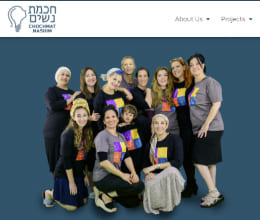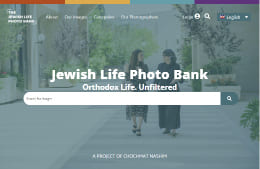Originally published in the Jerusalem Post Magazine Nov 9, 2018
For years, when people asked where I lived, I inwardly cringed. I hesitated. Sometimes, I even changed the subject. Because I didn’t want to talk about my town. I didn’t want to deal with the reactions and questions that came when I answered because my town was known for horrible things.
It was known for men spitting on little girls and for no images of women in its publications. It’s known for “modesty” signs and for city management so derelict that people often wondered why we didn’t move out that day.
It’s true that when male passengers told our daughters to the go to the back of the bus and when women disappeared from the posters in health clinics and banks, when grown men harassed school girls and those modesty signs told us what to wear and where to walk, and especially when local community centers began to separate children into “Haredi” and “Zionist” groups, we contemplated leaving.
But then something amazing happened. The community started to push back. When the mayor refused to assist and protect women who were verbally and physically assaulted in the public square, five enterprising women turned to the courts, and won — several times. They petitioned to have the modesty signs taken down and security cameras installed. The mayor was finally forced to remove the signs — comply with the court’s decree or go to jail! — but he never installed the cameras. The consequence? Major thoroughfares of his city have been dramatically and systematically vandalized with black and red graffiti calling for the ouster of immodest women and “Zionists.”
Resistance via the courts was joined by numerous groups on WhatsApp and Facebook, with names such as Saving Beit Shemesh and Beit Shemesh Women Shine. Made of dozens of women — and men– who turned to one another to save their city, native Israelis and new immigrants spoke together about the municipal issues, from unfair allocation of city resources to the closing of Dati Leumi schools and ganim. We supported one another, wrote letters, formed committees, created videos, and fought point by point against the unwelcome changes that were being forced on the city.
We were proactive too. A campaign to remind the city of the women it had erased, the brainchild of Ramat Beit Shemesh Alef resident Kerry Bar-Cohen, saw weekly posters of women with funny messages. Quietly, but effectively, she drew attention to the absurdity of the city’s removal of women’s images from the public sphere.
Residents met Knesset members and news reporters, as well as other activists, in the local effort to repair what had gone so awry. Dozens of women, whose regular schedules were tight with family responsibilities and full time jobs, made saving Beit Shemesh a priority. Tirelessly, endlessly, and entirely as a volunteer initiative, the women of Beit Shemesh fought for the community to be safe, for the children to be able to walk down the street without fear of assault.
For me, the events in my city changed my life. From being a mother with a business, I became a woman with a cause. I have spent the past seven years speaking out about the damage caused by extremism, in blog posts, journalistic articles, panel discussions, and any other platform I have found. My warning is consistent to other communities: stop these practices before they spread further; use grassroots efforts to push back.
It is important to note that everyone suffers under extremism. The ones who suffered most weren’t my friends and I, or even the soldiers who were harassed daily, or even the disenfranchised girls on the buses. The ones who suffered most were the Haredim, the non-extremist Haredim who have only ever wanted a decent quality of life and normalcy for their families. Their lives were made hell by their neighbors for whom no one can be modest enough, religious enough, or zealous enough. Quietly, we worked with residents in these neighborhoods to identify the culprits and learn the pressure points that would make them back off. And we used these pressure points when the mayor did nothing, the police were stymied and the extremists one again threatened our children. And we kept these connections to residents, outwardly unlike us but who held the same goals.
Still, the mayor allowed the extremists to hold the city hostage. He neglected infrastructure and education, and stood by as the entire welfare department collapsed. Beit Shemesh was on the brink of disaster.
And suddenly, all that has changed. The people of Beit Shemesh — of all stripes and hats, including at least some of the ultra-Orthodox — elected a new mayor. One who cares about all segments of the population. In the course of a day (plus the nail biting time it took to count the absentee ballots), the people of Beit Shemesh were relieved of their fear for the future as the city came together, men and women, secular and religious, ultra-Orthodox and traditional, in a collective desire for positive change and elected Dr. Aliza Bloch for mayor.
Dr. Bloch was strategic in her efforts, and yes, she did not put her image on her campaign posters in certain areas of the city. But, she knew that in order for her message to be heard, she had to speak to her audience in a way they could hear. And hear her they did. For even those who could not vote for Dr. Bloch because their religious leaders forbade it, chose to stay home that day, knowing that their actions would tip the scales in her favor.
This revolution cannot be be overstated. It is proof positive that most people want a life out from under the thumb of extremists and that community led efforts can change what was considered a foregone conclusion.
Last week, the city that had effectively erased its women elected a woman to be mayor.
And for the first time in more than seven years, I can say with pride, “I live in Beit Shemesh.”
photo credit Jonathan Hanig of Jewtography


